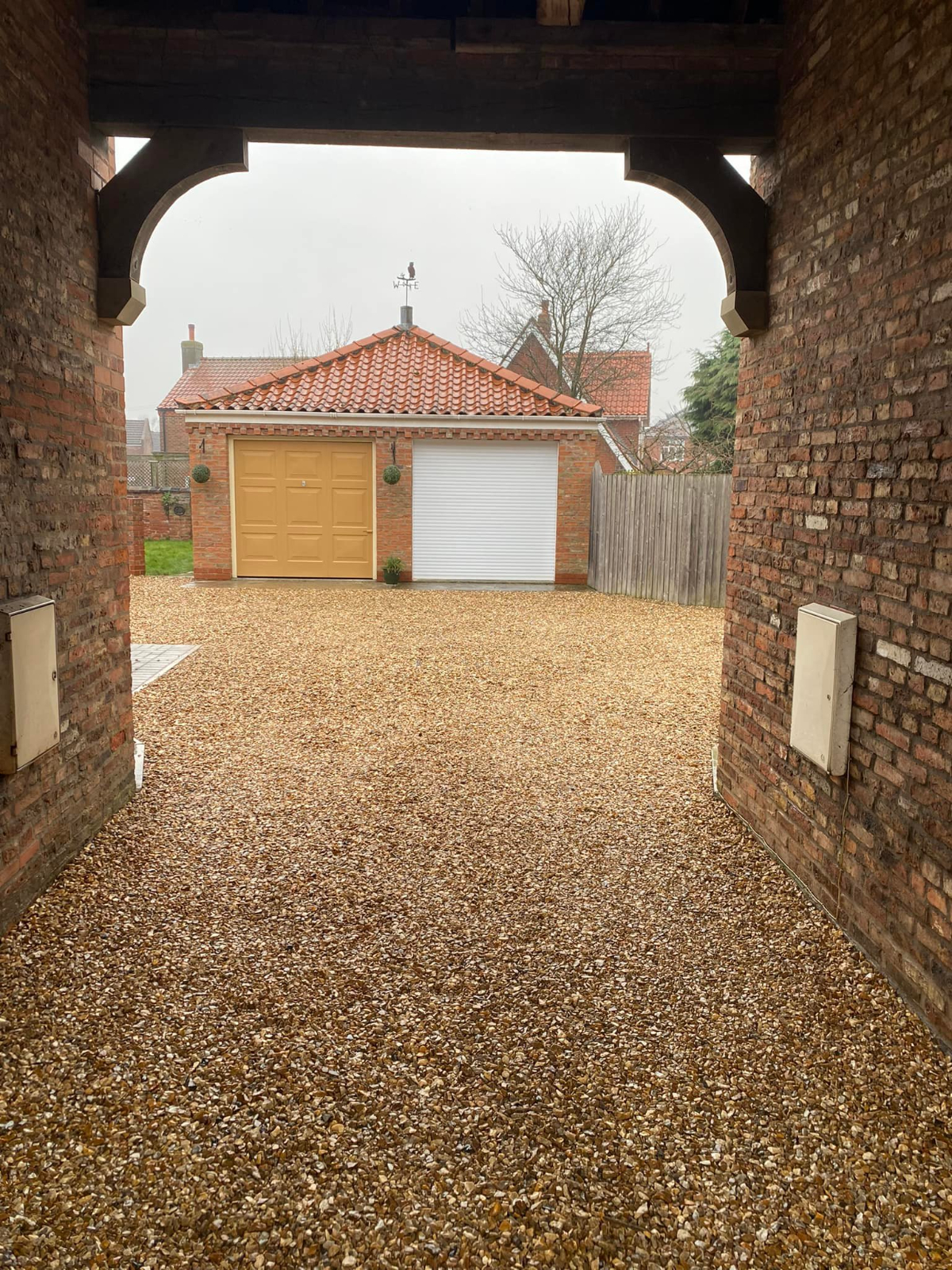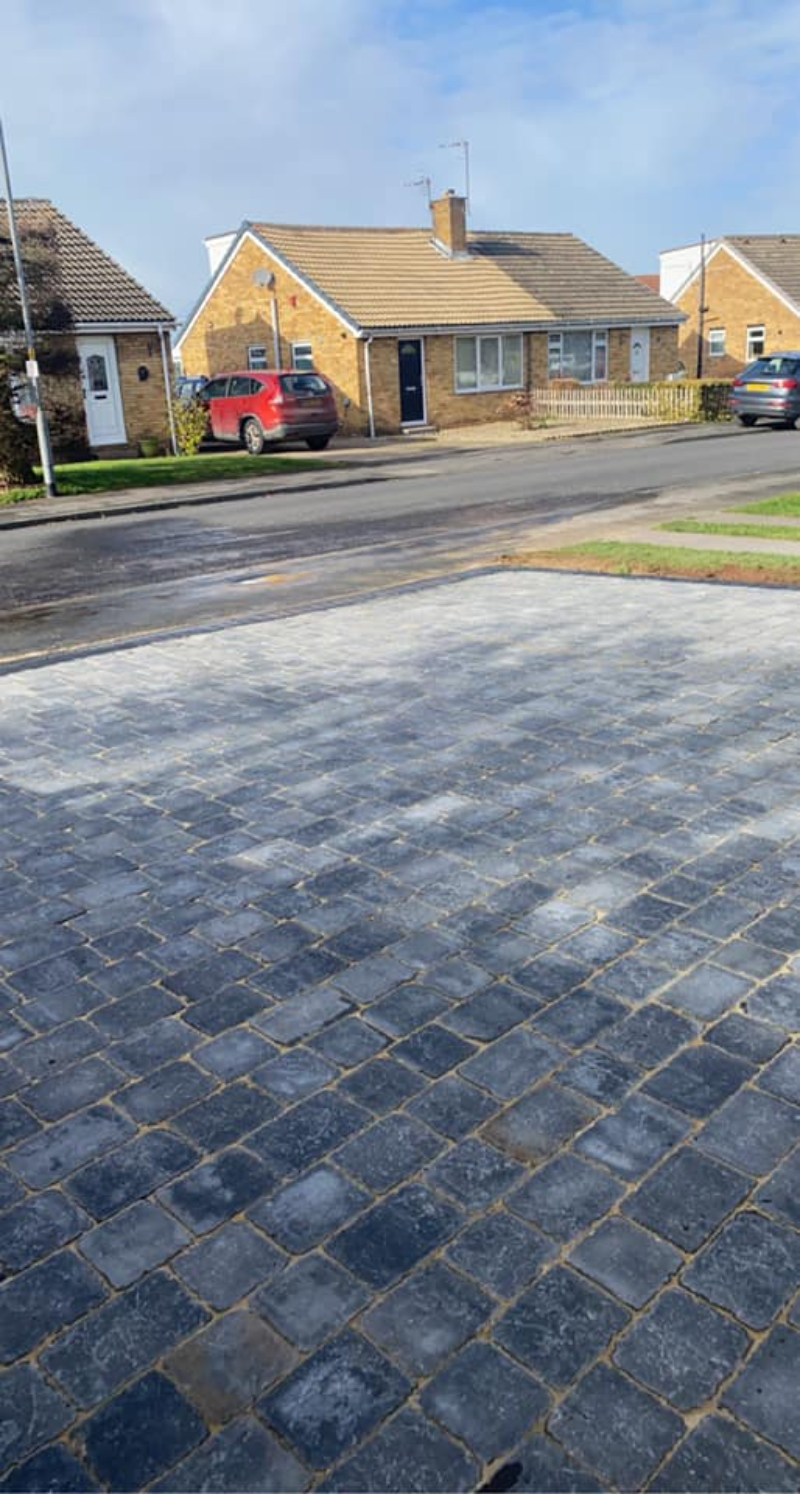This article asks: what is the most important part of driveway installation? Discover the most crucial aspect of driveway projects and ensure a durable, functional, and visually appealing outcome.
From proper foundation work to material selection, learn how to prioritize the essential steps for a long-lasting driveway solution.
The most crucial part of installing brand-new driveways is the planning and preparation phase. This step plays a huge role in ensuring durability, longevity, and overall satisfaction with your driveway.
The planning process includes deciding on the right kind of material for the driveway, determining the exact dimensions, proper site preparation and acquiring the necessary permits if needed. The initiation of the planning process necessitates the selection of appropriate material for your driveway, which can include asphalt, concrete, stone or gravel. The material chosen significantly depends upon a number of factors.
These factors vary widely, encompassing the prevalent weather conditions in your area, your personal budget constraints, and individual preference, such as aesthetic appeal and durability. Every material has unique characteristics, ensuring an ideal pick for different needs. That's why it's crucial to carefully analyse before making a choice. The next step is to outline the exact dimensions for your driveway. It's important to measure correctly as this will determine how much material you will need. Remember to leave sufficient space for vehicle manoeuvrability.
Finally, preparing the site for driveway installation is a significant part of the process. It typically involves the removal of grass, roots, other plant life and any debris present. Levelling the ground is also crucial to ensure a flat surface. If these steps are ignored, and there are inconsistencies with the terrain, it can lead to an uneven driveway surface. This can further cause problems with water drainage and potentially damage your vehicle.
What are the Benefits of a New Driveway?
When you install new driveways, you are adding an essential piece of functionality to your property. In addition to improving your home's kerb appeal, this household improvement can also potentially increase its overall value.
A well-installed, aesthetically pleasing driveway, laid with high-quality materials, can turn ordinary frontages into places of elegance and charm, immediately elevating the exterior appearance of your home.
Moreover, having a sturdy, well maintained driveway offers convenience to homeowners and visitors alike, providing a safe and smooth surface for vehicles. It's an investment that offers immense practical benefits, increasing the usability of your property.

Secondly, a fresh, newly laid driveway boasts a higher degree of functionality. It provides a sturdy, reliable area for parking your vehicles, ensuring they are safe and secure off the road. A properly constructed driveway remains unyielding under the weight of your cars, vans, or caravans, resisting damage from wear and tear. This improves the overall usage of your property, maximising outdoor space for parking. With a new driveway, you can effortlessly manoeuvre your vehicles without the fear of causing any damage, all while adding value to your home.
Finally, investing in correct installation of a new driveway can significantly reduce the need for constant repair and upkeep. When you utilise high-quality, durable materials and employ the expertise of professional installers, you're ensuring that you're left with a long-lasting, sturdy surface. A professionally installed driveway could potentially last for several decades, with little to no maintenance required. This ultimately saves you both time and expense, and provides a functional and aesthetically pleasing addition to your property. Remember, a well-built driveway not only increases your home's curb appeal but also its overall value.
Different Types of Driveway Materials
When it comes to driveway materials, you can choose between asphalt, concrete, gravel, brick and concrete pavers, stone and pervious concrete. The right choice for you will greatly depend on your location, budget, preferences and needs. Asphalt is one of the more popular choices due to its cost-effectiveness and straightforward installation. However, it requires regular maintenance to prevent cracks from developing. Concrete is another common choice. It's durable and can be stamped or dyed to match your home's appearance.
On the downside, it can be more costly than asphalt and might take longer to install. Gravel is an affordable option and offers easy maintenance. It provides a natural look, but it's not as durable as other materials and can sometimes lead to loose particles. Brick and concrete pavers are perfect if you're looking for a more traditional, timeless look. They're durable but can be more expensive. Stone driveways are typically stronger and more durable than other options. However, they come at a higher price tag.
Lastly, pervious concrete is an environmentally conscious choice as it allows water to percolate through reducing runoff.
What Maintenance does my Driveway Require?
Your driveway's upkeep needs largely hinge on the material it's made from. For instance, concrete driveways may need sealing every few years, while asphalt might need an annual coat.
On the other hand, brick or cobblestone driveways may require occasional replacement of individual pavers. In any situation, hiring a professional ensures your driveway stays in top shape. Asphalt and concrete surfaces, such as driveways, require consistent care to stay in their best shape.
Routine sealing is crucial for preserving their longevity as it helps to prevent the formation of cracks and potholes that can significantly damage their surfaces.
Another essential aspect of maintaining asphalt and concrete driveways is regular cleaning. This not only enhances their appearance but also removes debris that could eventually lead to more serious, costly problems.

However, brick pavers and stone driveways are not without their maintenance needs. These surfaces may necessitate periodic power washing to remove residual dirt, grime and other forms of surface debris that compromise the pristine appearance of your driveway. Also, it's not uncommon for certain areas or sections of your brick paver or stone driveway to destabilise due to various factors such as weather conditions, heavy usage, or erosion over time.
These destabilised sections may call for prompt replacement to ensure the safety and integrity of your driveway. It is therefore essential to keep a close watch on the state of your driveway to get ahead of any potential issues. Gravel driveways are practical and cost-effective, but they may require regular upkeep. Due to factors such as weather, vehicle traffic and natural settling, the gravel can begin to shift from its intended position.
Similarly, erosion can occur, especially after heavy rainfall or snow. This can cause thinning spots or potholes in your driveway. Therefore, routine reapplication may be needed to ensure your driveway remains functional and aesthetically pleasing. Good maintenance practice involves promptly fixing small issues before they evolve into severe problems. Regardless of the material, it takes both time and effort to maintain driveways.
Do You Need Planning Permission for a Driveway?
Before starting the installation of a new driveway, it is crucial to abide by the planning permissions or regulations in your vicinity. Specifically in the UK, planning permission is usually not needed for driveway installations if the related works like dropped kerbs are carried out within the confines of your property.
However, there are more stringent rules if your chosen surface is non-permeable, such as concrete. These materials impact the rainwater runoff considerably, therefore, requiring the approval under the sustainable drainage systems or widely known as SuDS regulations. In this context, these regulations aim to manage water runoff efficiently to prevent flooding and environmental damage.
Furthermore, if your property is categorised as a listed building or falls within a conservation or protected area, obtaining planning permission becomes a mandatory requirement. It is essential because these areas hold historical or architectural significance and any alterations could affect their integrity.
Finally, every situation is diverse, so if you are unsure, it is always best to consult with your local planning authority. We are here to help and ensure your compliance with all local bylaws and regulations. Remember, it's always a good idea to make sure of these elements before embarking on any work on your new driveway. This proactive approach can save you time, energy, and potential legal issues in the long run.
At Gaskells Groundworks, we're not just a landscaping business - we're a family run team of garden enthusiasts dedicated to transforming outdoor spaces. We work passionately, applying our knowledge to create your dream landscape. Whether you're considering a complete garden makeover or just need some advice, we're here to help!






